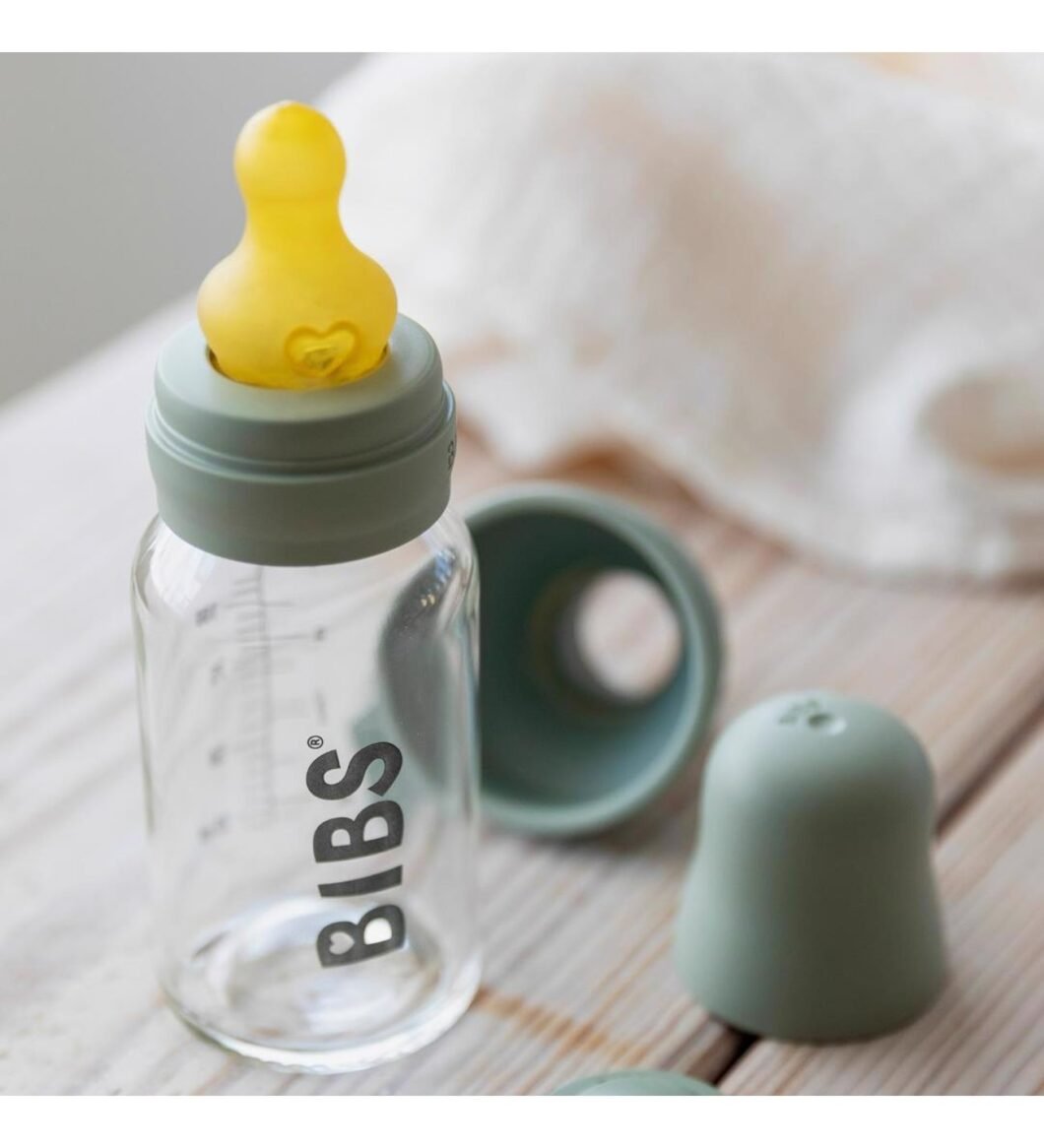When choosing a baby bottle for your baby, several factors should be considered to ensure safety, comfort, and convenience:

- Material: Baby bottles are typically made from plastic, glass, or silicone. Plastic bottles are lightweight and durable but ensure they are BPA-free and labeled as safe for use with infants. Glass bottles are sturdy and can be sterilized easily but may be heavier and more prone to breakage. Silicone bottles are soft, lightweight, and unbreakable, making them a popular choice for many parents.
- Nipple Type: Select a nipple shape and material that mimics the mother’s breast to facilitate easy transitioning between breastfeeding and bottle-feeding. Nipples come in various shapes, sizes, and flow rates (slow, medium, fast). Choose a nipple suitable for your baby’s age and feeding preferences.
- Anti-Colic Features: Consider bottles with anti-colic features such as venting systems or angled designs. These features help reduce the ingestion of air during feeding, minimizing the risk of colic, gas, and fussiness.
- Ease of Cleaning: Opt for bottles that are easy to clean and sterilize to maintain hygiene. Look for bottles with wide openings and fewer parts, making them easier to disassemble and clean thoroughly. Dishwasher-safe bottles can also save time and effort.
- Size and Capacity: Choose bottles with an appropriate size and capacity for your baby’s feeding needs. Newborns typically require smaller bottles with a capacity of 4 to 5 ounces, while older babies may need larger bottles.
- Compatibility: Consider the compatibility of the bottle with breast pumps if you plan to express breast milk. Some bottles are designed to directly attach to certain breast pumps, simplifying the process of expressing and storing breast milk.
- Brand Reputation: Research reputable baby bottle brands known for their quality, safety, and reliability. Read reviews from other parents and consult with healthcare providers for recommendations.
- Cost: Baby bottles come in a range of prices, so consider your budget when making a selection. While cost is important, prioritize the quality and safety of the bottle for your baby’s well-being.
Ultimately, the best baby bottle is one that meets your baby’s feeding needs, is easy to use and clean, and ensures a comfortable feeding experience. Experiment with different bottles to find the one that works best for your baby and your lifestyle.
Visited 16 times, 1 visit(s) today

